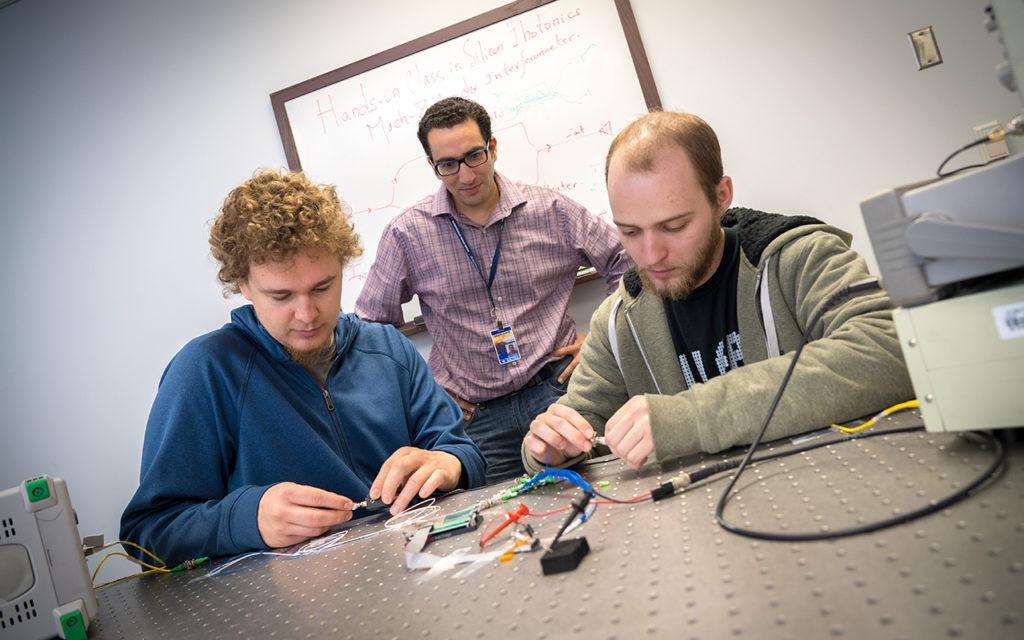Are you debating whether or not to pursue engineering in college? May you want to know that is engineering tough to study before you decide to pursue it?
Yes, it is challenging for individuals who do not have a strong background in mathematics or engineering.
This post will look at how tough it is to get this degree, so continue reading to discover about this topic.
Why Is Engineering Hard To Study?
Engineering appears to be a challenging field. It entails more physics and math than the majority of students desire. So, it is a complex subject to study.
What makes this field so tricky? It’s especially tough because these technician programs require a lot of logical thinking and many other skills.
Is Engineering Math Hard?
Calculus I, Calculus II, Calculus III, statistics, and differential equations will be necessary for engineering students.
Besides, Software, Mechanical, and Petroleum require more specific math subjects than Electrical and Aerospace.
The math classes are challenging, but learners will have a wealth of materials at their disposal to assist them.
Generally, if you did well in your first Calculus course, you should be able to learn the more sophisticated math needed for engineering in university.
Student Workload
The intensity of the courses is not the only issue that most students confront in finishing a degree. Even a weak science and math student can go through college with enough determination and excellent study abilities.
The actual problem is that students must apply that extraordinary work ethic to every challenging course they take.

Each semester, undergraduates take roughly 5 to 7 courses. About 50% of those in less challenging degrees will be simple electives.
Those “electives” in technical programs, on the other hand, are challenging courses that use the advanced math you acquired in previous classes.
Resourcefulness and persistence are just as important as technical abilities in a challenging academic program.
How Hard Is Engineering Course?
The four years to earn a Bachelor of Science in almost any engineering subject, regardless of which degree you pursue, requires focus.
Most programs begin with two years of physics and math. The degree of difficulty in graduation varies depending on this area.
1. Studying Mechanical Engineering
A Mechanical degree necessitates a great deal of self-control. While concentrating on their subject, students need to take introductory electrical, materials coursework, and computer science.
Depending on the curriculum, expect specific training in feedback, machine design, and CAD; elective classes in machining and robotics are also available.
2. Electrical Engineering
This course may be the most difficult of the fundamental disciplines due to the many advanced math students will need to utilize in their electrical classes.
Students will study more about power efficiency and electrical design in their last two years.
3. Studying Civil Engineering
It is a valuable degree in and of itself, and it prepares students for a variety of intriguing specialties.
One of the essential elements is mechanics (Physics 1) in civil engineering studies that focus on construction and design.
You must pass Physics 2 and advanced Calculus, although you will not be required to apply them. Civil courses include surveying and learning about construction materials.
4. Chemical Engineering
Chemical offers a thorough educational program. These students must first master basic principles before moving on to mass and chemistry transfer.
Chemical degrees typically demand more laboratory time than other fields, adding to the burden.

5. Aerospace Engineering
Aerospace is a challenging field of study. It is more complicated than mechanical engineering since it begins with comparable courses before moving to more concentrated parts.
Aerospace courses, unlike other disciplines, will study Linear Algebra and use it in their specialty courses such as orbital mechanics.
6. Software Engineering
Software engineers do not have the same physics background as others.
In some ways, this makes the course easier for anyone who grasps computer science topics fast. Machine and data structures learning will be the emphasis of advanced classes.
Is Studying This Field Worth It?
The college will be complex, and so many students may be struggling in their first physics or math subject. It makes you wonder if it’s worth it to keep going.
Take some time to consider the job you are pursuing before deciding whether extending your degree is appropriate for you.
If you find that the ambiguity and complexity of problems upset you, this field is not the most excellent career choice.
Get Help With Hard Classes
Engineering school, regardless of your major, may be difficult at times. If things get too much, do not be hesitant to seek assistance.
It is best to have a mentor who can steer you in the right direction. Moreover, ask your instructors and TA in any challenging class how you may improve your GPA.
It will be difficult work, and although you are intelligent, you will need excellent time management skills.

College vs. The Real World
To gain a better picture of what real-world employment looks like, speak with a mentor during your internships.
They will remind you that the years you spend in education do not accurately reflect what life is like in the workplace.
Acquiring a degree in Chemical or Electrical Engineering will not be as strenuous as working in those professions. However, it serves as an excellent primer.
It is best to spend time looking for employment openings in your field of study. It should give you an excellent picture of an engineer’s daily life.
Conclusion
So, is engineering hard? This degree is classified as one of the most difficult to obtain. It requires logical thinking, great patience, and passion.
Hopefully, the article has provided you with useful knowledge to answer the above question. Thank you for reading!
